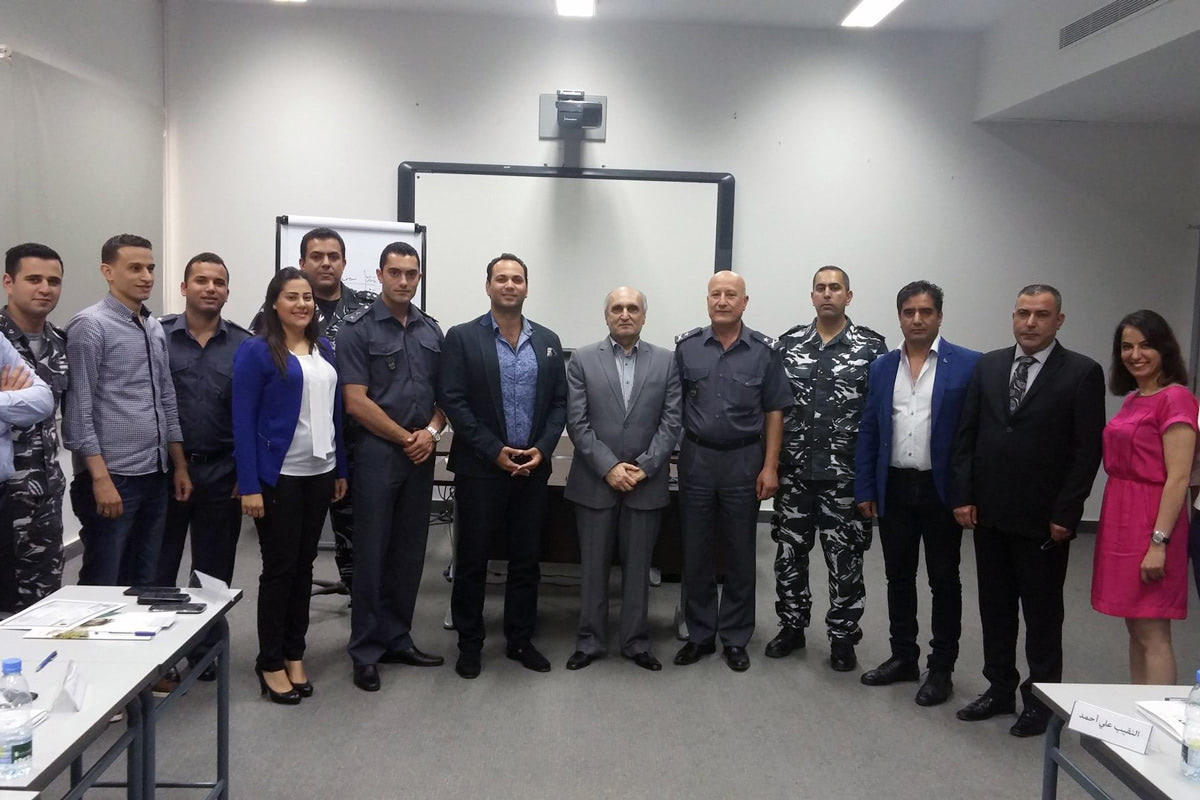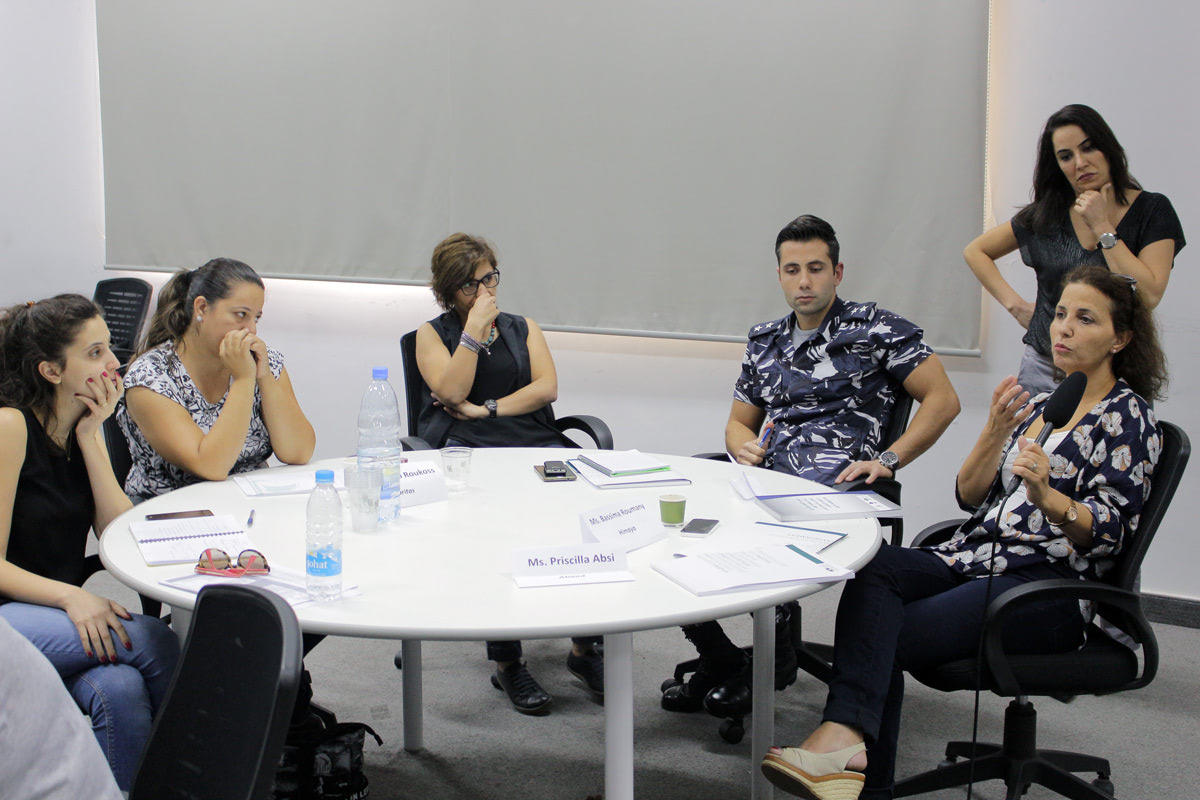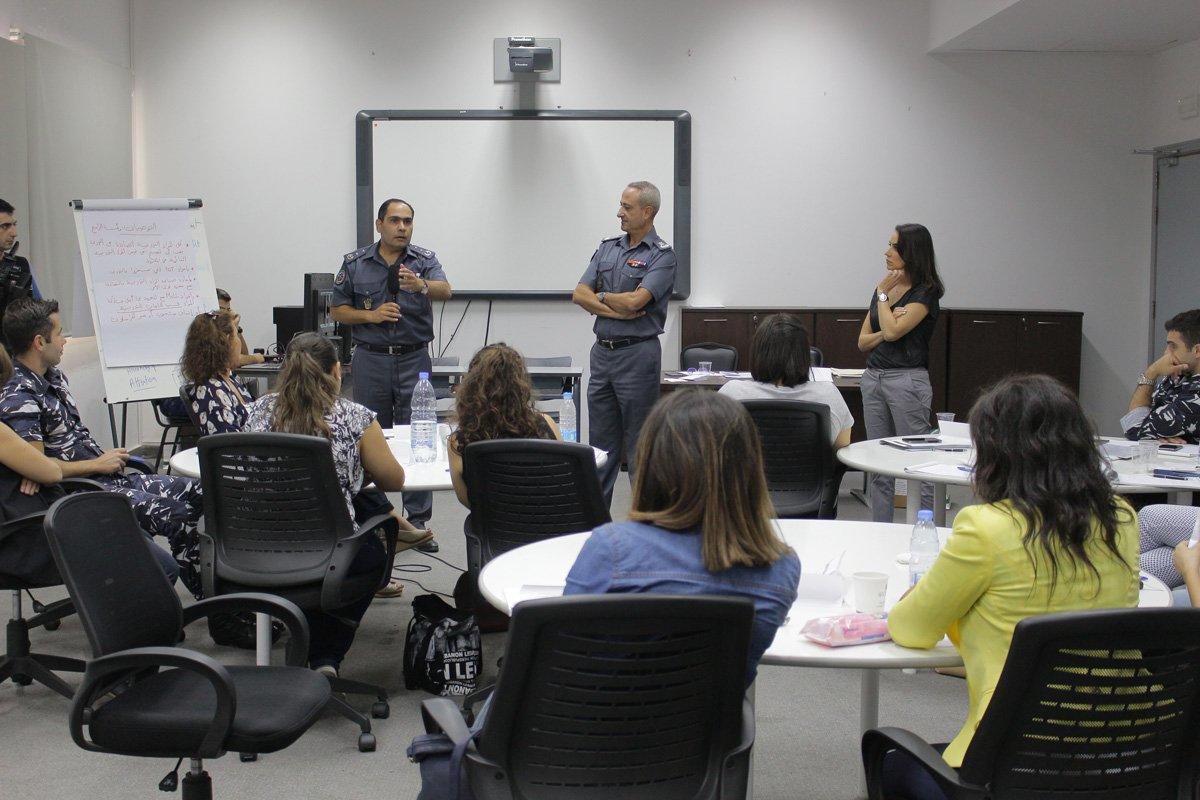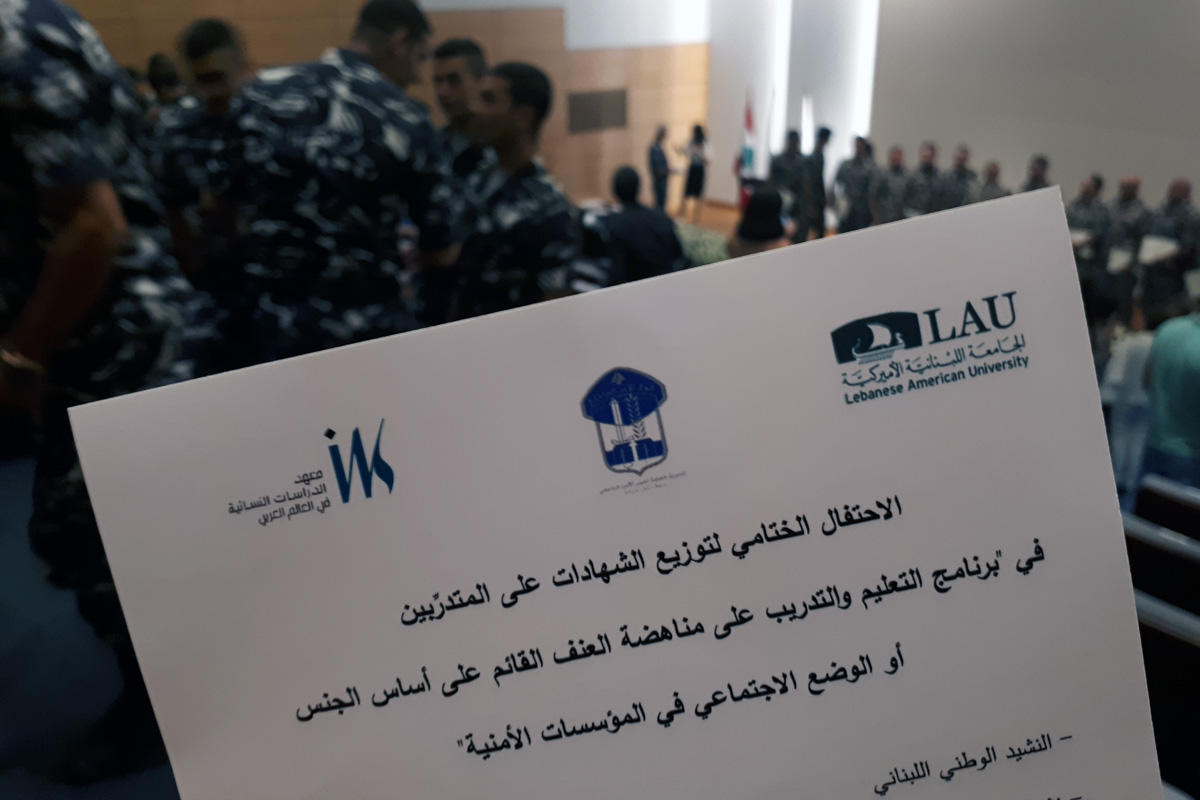Support for Security Sector
Capacity Building for Law Enforcement Personnel on Gender-Based Violence Prevention and Response
AiW completed a project that focused on building the capacity of law enforcement personnel to identify, prevent and respond appropriately to gender-based violence (GBV), and to increase gender awareness and equality within the security sector itself.
The full program, funded by the Dutch Embassy, lasted for two years and entailed in-depth training for female and male Lebanese security personnel on:
- Integrating gender perspectives into the provision of security service;
- Increasing women’s representation and participation in the security sector, international and national legal frameworks, policies, and procedures in cases of GBV;
- Overcoming challenges to gender equality and GBV prevention and response in the Lebanese context.
AiW strongly believes that a critical component of prevention and response to GBV is to work with security service providers alongside medical, legal and psychosocial personnel to ensure that survivors have access to the best possible care and support, and to reduce the risk of GBV.
Fostering a culture of intolerance towards GBV within the security apparatus can increase a sense of institutional responsibility, reduce societal perceptions of impunity, strengthen accountability, and promote positive attitudes towards gender equality both within the security forces and the population.
The training program was developed into two main phases as it took off. Throughout the years, different NGOs and UN agencies in Lebanon had been conducting trainings and workshops on the same matter.
During phase I, AiW conducted preparatory meetings with the concerned representatives at the General Security (GS) and the Internal Security Forces (ISF) to gather information on the training needs, challenges, and attitudes of the ISF and GS members. The findings helped draft the curriculum of the comprehensive training program which AiW agreed on with the Ministry of Interior and Municipalities, the directors of the ISF and GS, and heads of units within these directorates. In order to move towards the implementation of this curriculum, the program was tested with 10 students from the ISF Academy in Aramoun whereby the curriculum committee was able to gather suggestions to make the necessary changes to the curriculum.
The second phase of the program included the implementation of the training. A total of 35 officers, including men and women from the ISF and GS were trained. The sessions were given in Arabic by a pool of instructors which consisted of LAU faculty and experienced professionals from the field. The sessions were evaluated through post-test evaluations at the end of each one to assess their level of understanding and knowledge acquired.
The 35 officers graduated in a closing ceremony that was presided by the General Director of the Internal Security Forces along with senior administration of LAU and the Dutch Embassy. We’re looking forward to further engagement with the security forces as they discuss next steps and determine where we go from here!
All the training material was compiled into one training manual that was distributed to newly recruited officers. It is anticipated that the ISF and GS directors will find the training material relevant and important and thus feel the need to integrate it into the ISF and GS training curriculum. This will lead to the formal integration of all inherent subjects, addressed during the training implemented, into the academic program of the ISF and GS members and officials. In addition, the unique Arabic designed curriculum can be shared with other Lebanese security agencies and the army. Eventually the material can also be dispersed to security institutions in other Arab countries with similar needs.
Phase II ended with an interactive round table with other organizations working on the same matter in order to share lessons and carve out a future pathway for coordination, referral, and cooperation. At the roundtable, representatives from the NGOs shared their experiences about their involvements in trainings with security officers and discussed the following issues: lessons learned from the training projects with security personnel, sustainability of the training projects, and cooperation among NGOs involved in trainings in order to avoid duplication, and some recommendations regarding future training projects.
In light of the success of this training program, a comprehensive summary of the project and its goals, along with other articles related to gender-based violence and the police was published in a special issue of Al-Raida journal.
Finally, thirteen best performing trainees were awarded by the Institute with a scholarship for the Continuing Education (CE) certificate “Gender in Development and Humanitarian Assistance” (GDHA), which is the only one of its kind in the region. The purpose of the GDHA certificate is to enhance the integration of and engagement with gender issues within humanitarian and development programs and policies in the Arab world. It is a 10-module program which includes three main themes: Gender Integration in Development, Gender-Based Violence, and Gender and Conflict which addresses the Women, Peace, and Security agenda.




